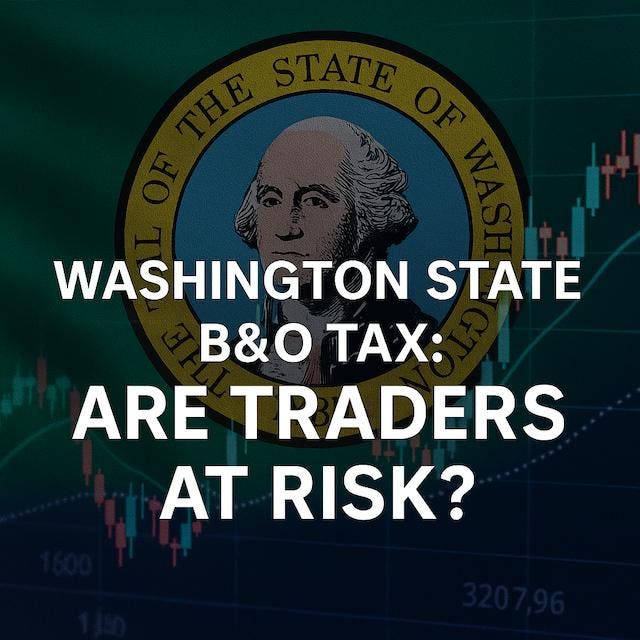Traders with high-volume activity could face tax on gross trading gains—even if they lose money overall.
Darren Neuschwander, CPA, and Adam Manning, CPA, contributed to this blog post.
Washington State has taken an aggressive stance on taxing investment and trading income under its Business & Occupation (B&O) tax regime. The October 2024 Antio court ruling and the enactment of HB 2081 in May 2025 have reshaped the landscape, potentially pulling active traders—both individuals and entities—into the tax base.
The B&O tax applies to gross receipts, not net income. RCW 82.04.080 defines gross income to include trading gains, interest, dividends, and investment income—without deducting trading losses. This poses a major risk to traders with large volumes of proceeds but net losses overall.
HB 2081 carved out exemptions for Family Investment Vehicles (FIVs) and Collective Investment Vehicles (CIVs). However, these exemptions are narrowly defined.
FIVs are limited to estates, trusts, and certain educational savings plans. CIVs require unrelated investors and external managers—criteria typical hedge funds meet, but not personal or family trading entities.
Most active traders operating through husband-wife LLC/partnerships, or S-Corps, will not qualify for either entity exemption. Individual traders claiming federal Trader Tax Status (TTS) and reporting expenses on Schedule C and gains under Section 475 MTM could inadvertently signal “business activity,” triggering B&O tax liability.
We submitted a formal letter to the Washington Department of Revenue requesting guidance on whether traders are considered “engaged in business” under state law and whether net trading results—not just gross gains—can define the taxable base.
Washington-based traders seeking federal tax savings through TTS may now face unexpected state tax obligations. The situation demands clarity from the state and awareness among traders.
Key Actions for Traders
- Consult a tax advisor if you live in or recently moved to Washington.
- Reevaluate the use of Trader Tax Status and Section 475 MTM in light of B&O implications.
- Monitor upcoming guidance from the Department of Revenue.
- Raise awareness within the trading community about the risks of B&O tax exposure.
Please look at the longer-form version of this blog post on GreenTraderTax.com, which includes a letter I sent to the WA DOR.
Read the full article here

